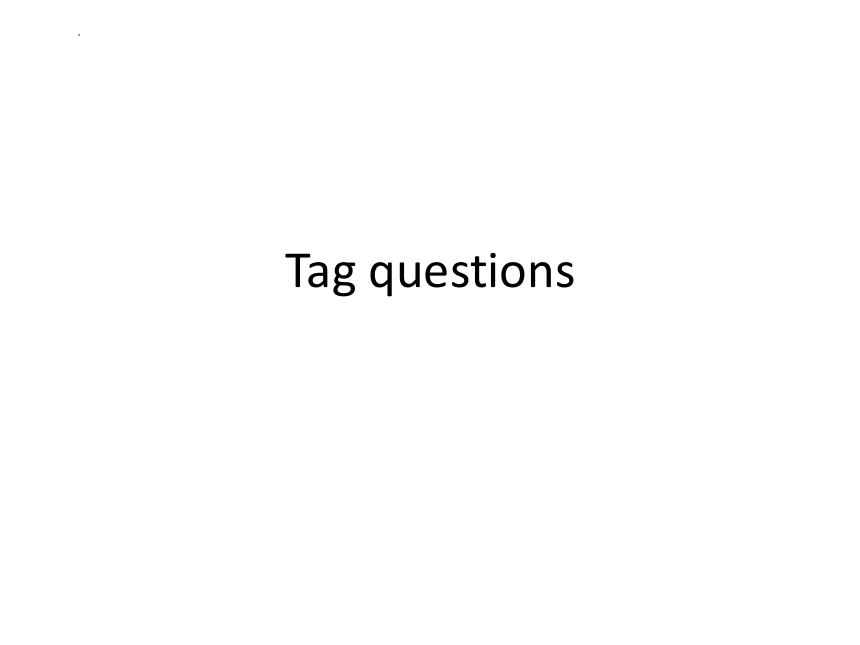(
课件网) Tag questions tag a small piece of paper, plastic etc attached to something to show what it is, who owns it, what it costs etc. name/identity/price tag What is a tag question A tag question is a special construction in English. It is a statement followed by a mini-question. We use tag questions to ask for confirmation. They mean something like: "Is that right " or "Do you agree " They are very common in English. The basic structure of a tag question is: positive statement negative tag Snow is white, isn't it negative statement positive tag You don't like me, do you Notice that the tag repeats the auxiliary verb (or main verb when be) from the statement and changes it to negative or positive. Positive Statement Tag Questions Look at these examples with positive statements. You will see that most of the time, the auxiliary verb from the positive statement is repeated in the tag and changed to negative. (+) positive statement (-)negative tag subject auxiliary main verb auxiliary not personal pronoun same as subject You are coming , are n’t you We have finished , have n’t we You do like coffee, do n’t you You like coffee, do n’t you They will help , wo n’t they subject auxiliary main verb auxiliary not personal pronoun same as subject I can come , can n’t I We must go , must n’t we He should try harder, should n’t he You are English, are n’t you John was there, was n’t he Notice: the use of do in the two coffee questions. Remember that in Present Simple, do is optional in positive statements (You like coffee/You do like coffee). But the do must appear in the tag. The same applies to Past Simple did. in last two questions, no auxiliary for main verb be in Present Simple and Past Simple. The tag repeats the main verb. Negative Statement Tag Questions Look at these examples with negative statements. Notice that the negative verb in the original statement is changed to positive in the tag. (-) negative statement (+) positive tag subject auxiliary main verb auxiliary personal pronoun same as subject It is n't raining, is it We have never seen that, have we You do n't like coffee, do you They will not help, will they They wo n't report us, will they subject auxiliary main verb auxiliary personal pronoun same as subject I can never do it right, can I We must n't tell her, must we He should n't drive so fast, should he You wo n't be late, will you You are n't English, are you John was n’t there, was he Notice:won't is the contracted form of will not the tag repeats the auxiliary verb, not the main verb. Except, of course, for the verb be in Present Simple and Past Simple. Answering Tag Questions How do we answer a tag question Often, we just say Yes or No. Sometimes we may repeat the tag and reverse it (They don't live here, do they Yes, they do). Be very careful about answering tag questions. In some languages, an opposite system of answering is used, and non-native English speakers ... ...

